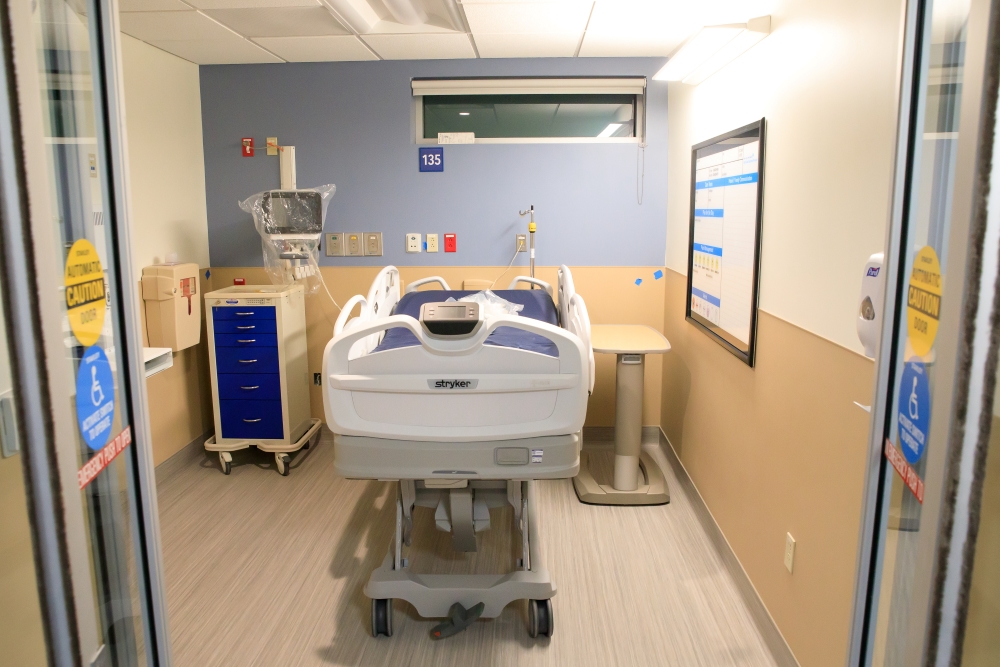Has tipping reached the tipping point? I’m hardly the first to ask this question. Ever since iPads on swivel mounts began showing up on store counters everywhere, consumers have been under pressure to tip on almost any type of transaction. Here’s your cookie: Please pay me an additional 20 percent to hand it to you.
Since the pandemic, tipping has spread like a virus. It feels like it’s only a matter of time before we’re expected to tip ourselves at self-checkout.
I’m taking a bite out of this always-divisive topic because last week I noticed a tip cup at a local 7-Eleven. Ridiculous, I thought – we’re supposed to tip for paying inflated convenience store prices? At least give me a paper bag that doesn’t rip before I get to the door. It’s one thing to tip someone who crafts a latte, transforms an unruly head of hair into artwork, or makes a dinner out more enjoyable. Basic counter transactions are another matter.
After more consideration, I decided that if anyone needs a little more cash, it’s lower-paid retail employees trying to get by. It’s not their fault that the retail business has been built on undervalued labor with irregular hours. And like other business sectors, the disparity between the top and bottom of the payroll range is Grand Canyon-ish in scale. Employees – and to a lesser extent, small-business owners – are just cogs in a very antiquated machine.
Less defensible than the 7-Eleven tip play is the thinking at a Plymouth salon whose pay screen suggested a tip range that started at 30 percent. It must have faced a customer backlash because the numbers have since been revised downward. I’ll chalk it up to a momentary bout of greed, sparing the shop the embarrassment of a public naming.
The deal at restaurants is more nuanced. By law, base pay for servers has always been insanely low, on the assumption that tips will more than make up the difference. That, of course, means workers’ income hinges on their customers’ generosity and mood, not necessarily the quality of the service delivered. If the chef overcooks a dish, it’s the server who might get unfairly dinged.
While the minimum wage for most hourly-paid workers in Massachusetts is $15, it’s $6.75 for anyone who makes more than $20 a month in tips. (That’s better than in most states.) It makes sticking to a monthly household budget extra complicated. I have friends who stress out weekly about the ups and downs of their pay. Bad weather on a Friday or Saturday can spell disaster. Those two days are crucial to most servers’ income. At the same time, restaurant owners are wrestling with crippling increases in the cost of everything.
Over the last year or so, some restaurants – including a few in Plymouth – have tried to offset those expenses by adding a fee to bills instead of tacking another dollar or two on to prices. Sometimes they’re doing both. It’s typically 3 percent of the bill before taxes. At The Tasty, for example, it’s called a “Kitchen Appreciation Fee.” But unlike most restaurants that have imposed such surcharges – relegating the news to fine print on a menu – The Tasty’s owners, Mike and Nina Peters, addressed theirs directly.
“Due to the antiquated Massachusetts state laws surrounding tipping and restaurant labor, great wage disparities between the Back of House (BOH) & Front of House (FOH) are all too commonplace,” they explain on The Tasty’s website. “(Many restaurants may have differences of over $20 an hour amongst non-salaried employees.) Many will ask ‘how is this any different from a gratuity?’ or ‘why not just raise prices?’ While we could simply raise our prices and bury this cost in our menu items, we want to be open about where your money is going: every penny of this 3 percent fee goes directly to our non-salaried kitchen workers.”
Nina Peters told me recently that the restaurant has received “very little pushback” since putting the fee in place. “We are requiring more of our guests, because we need to ask for more to keep our doors open and staff paid at a fair wage, all our staff,” she said. “Everything is more expensive – payroll, rent, food. Many restaurants have been hesitant to reflect changes in these costs, so as to not upset customers. Those that just raise their prices further increase the divide…Like everything, dining out costs more. Higher prices are a long time coming. We think this approach is fair and transparent, and hopefully those who want to see small restaurants survive will understand and be supportive.
The 42° North restaurant on State Road frames it this way: “To help us offset a portion of the increased cost of goods and labor, a 3 percent administrative fee is added to all guest checks.”
The now-closed Lucioso’s Pub, which operated at the Plimoth Grist Mill complex, mixed politics and food and found itself in a stew with some customers. It tacked on a “Let’s Go Brandon” fee to bills, referencing a sophomoric anti-Joe Biden slogan. Politics and an enjoyable meal out – two things that never go together. (Gillis Family Tavern now operates at that site.)
Then there’s “keep raising menu prices until customers balk” approach. In Massachusetts and across the country, some restaurants have implemented “no tipping” policies, and increased prices to better reflect the true cost of labor and operations. It’s a direct approach, but maybe not the easiest to sell to diners. Bigger numbers on menus stand out, whereas small additional fees tend to fade into the background. The results of such no-tipping experiments have been mixed nationwide. (I don’t know of any restaurants doing this in Plymouth, but please correct me if I’m wrong.)
Further price increases come with risk. Customers already sweating over the economy and their financial security might cut restaurants out of their budget. Eating at home isn’t as much fun as dining out, but it’s cheaper. And people who continue to fork over money for meals out might think twice before ordering that second glass of wine at $14 or $15.
Discussions on the Hockomock Swamp Supper Club and Desserts Emporium – a popular Facebook page that includes reviews and commentary on Plymouth restaurants – indicate that some people are increasingly finding these fees – and the proliferation of tipping for counter service – annoying.
“It’s time for consumers to take a stand and not do business with places that keep nickel and diming their customers,” one member wrote about a Plymouth restaurant’s surcharge. “Next thing, an added charge on your grocery bill for an employee to go retrieve shopping carts. It’s called the price of doing business and should be reflected in the costs on menus or shelf prices.”
Retail is a tough business. Running and working in a restaurant is even tougher. From a compensation standpoint, maybe only the music business has a worse pay structure. Personally, I always add at least 20 percent to my restaurant tab. I tip on the tax, too, but it’s a small fraction of the total. For other service-related purchases, tipping is on a case-by-case basis. Being cheap isn’t an option. Neither is being ridiculous.

Reducing the ER wait at Beth Israel Deaconess
More than a few people have resisted going to the emergency room at Beth Israel Deaconess Hospital-Plymouth out of fear that they’ll end up waiting for hours to receive care. It’s not a problem limited to Plymouth, but the town’s rapid growth has at times stretched the hospital’s ability to provide prompt medical attention. In hopes of cutting ER wait times, it’s opened a 7,000-square-foot, 25-bed facility with the decidedly clinical name of Clinical Decision Unit, or CDU. It’s designed for “non-acute patients” who require observation and testing but not an overnight stay. “Opening this unit is a major milestone for the hospital as we continue to expand our capacity to better serve the community,” BID Plymouth President Kevin Coughlin said in a press release.
The hospital also plans to nearly double the size of its ER, and renovate existing space to create more private rooms for medical and behavioral health patients.
In addition, it’s going to move its Hematology-Oncology and Infusion Clinic to a nearby offsite location to add more space.
“We see approximately 46,000 patients a year at the hospital, and it was imperative to create an innovative and comprehensive ED expansion plan,” chief medical officer Dr. Tenny Thomas said in a statement. The realization of that plan is well underway, with a keen eye to serving BID Plymouth patients of today and tomorrow.”
The CDU was paid for through the “generous philanthropic support of the community,” the hospital said. Fundraising is already underway for the ER expansion. The hospital has already received a $1.5 million gift from a local family. In all, Beth Israel Deaconess is seeking to raise $8.5 million to complete the next phase of the project.
Milestone anniversary is a stretch for Long Pond Physical Therapy

The upcoming year marks the 20th anniversary of Long Pond Physical Therapy, which despite the name, has a clinic in the Redbrook development as well as its original location on Long Pond Road. That’s a lot of stretching (and a lot of reminding clients to keep up with their PT exercises at home). Owners Andrew Burke and Brian Faghan have been running the operation since its start, keeping up with changing techniques and technology along the way. They recently introduced something called Orthopulse One shockwave therapy, a treatment for musculoskeletal injuries Their slogan, “Limp in… walk out,” gets right to the point. Or maybe right to the ligament.
Reaching out to help at Sawyer’s Reach

A lot of the apartment and condo complexes that have sprung up around town in recent years are developing into communities within the community, meaning that residents become neighbors and neighbors sometimes get together for a good cause. Case in point: Sawyer’s Reach at Colony Place in Plymouth recently held its second Toys for Tots charity event. Organizers said that they have raised close to $11,000 in donations and collected more than 600 toys in two years. They were assisted by Plymouth firefighter Sean Page, who is the Plymouth County Toys for Tots coordinator.
The following businesses contributed items, gift cards, or food for the fundraiser’s raffle and silent auction: Portside Liquors, Bertucci’s, Rose and Vicki’s, Surfside Smokehouse Restaurant, Olive Garden, Market Basket, East Bay Grille, Plimoth Patuxet Museums, Tavern on the Wharf, Cabby Shack, La Baia, The Artisan Pig, La Bamba, Dillon’s Local, 71 West Atlantic Steakhouse, Yin Acupuncture, Waterfront Bar and Grill, Mamma Mia’s, 3V, Carmella’s, Made It, Alden Park, Jersey Mike’s, Ocho, Squirrel Run Country Club, Souther’s Marsh Golf Club, Aristocracy Salon and Day Spa, 110 Grill, Waverly Oaks Golf Club, HomeGoods, TJ Maxx, and Marshalls.
To submit your business news for consideration, see the “Send us your business news” note at the top of the Business section. Mark Pothier can be reached at mark@plymouthindependent.org.

